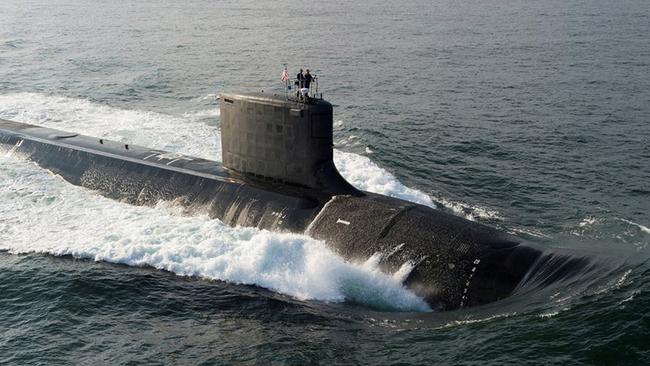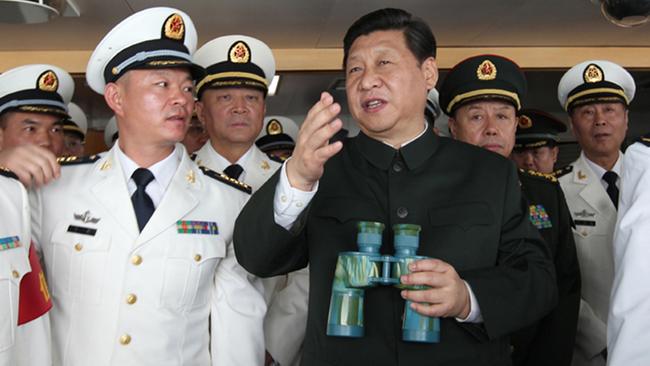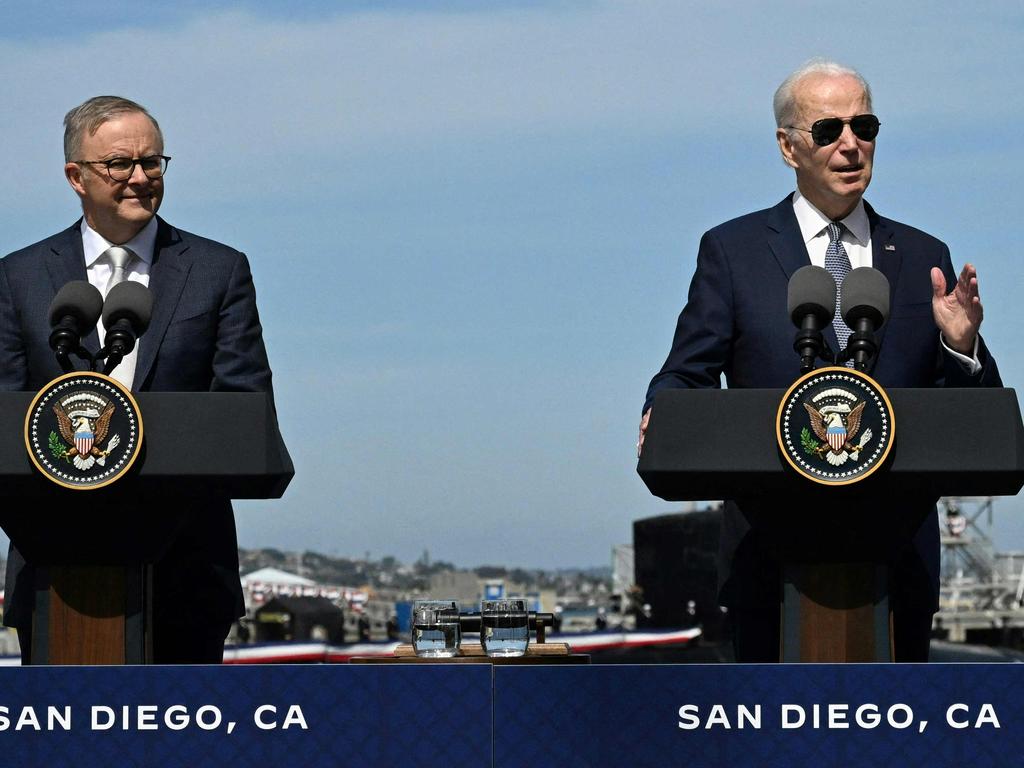
The Albanese government’s AUKUS deal is brilliant because it gets us nuclear submarines earlier, and cheaper, than any other possible program.
That’s because the first nukes we get will be Virginias already in service.
Don’t think that’s an implication they’re second-rate boats – a Maserati with 50,000km on the clock is still an infinitely better car than a brand new Corolla.
This is a historic commitment which, if followed through, will fundamentally change Australia militarily, and probably economically and politically.
It has a good chance of achieving long-term bipartisan support because both sides of politics can claim they invented it.
Scott Morrison and Peter Dutton get the credit for crossing the nuclear Rubicon and for brining Australia, the US and Britain together in the AUKUS partnership. That’s big, historic credit indeed.
But Morrison always claimed we would build all the subs in Adelaide, get the first one built by 2038 and probably have to choose between the US Virginia and the British Astute. All those claims were wrong.
Defence Minister Richard Marles has produced two critical breakthroughs in this agreement.
He has convinced the Americans to provide us three, and if necessary up to five, Virginia-class nuclear submarines. That still requires some US legislation but it’s a huge breakthrough, a triumph of defence diplomacy.
Secondly, he, or the whole process of consultation, has convinced the British to Americanise the successor to their Astute-class of nuclear attack submarine. That means we can use it too.
The evolved Astute, which will become the SSN AUKUS, will now have a US combat system, US weapons, a US-style reactor, a US-style propulsion system, vertical launch cells and many other Virginia-like features. It will actually be slightly bigger than the Americans’ existing Virginia boats, though with a slightly smaller crew.
Because both Britain and Australia will share this boat, and perhaps there’s a slight possibility the Americans will have some use for it too, the risk in building it is much reduced. We won’t have an orphan sub. Given that we’ve never built a nuclear boat before, an orphan sub as our first effort would have been madness.

So this is a very good deal.
But it still requires huge effort to implement.
AUKUS is a bit like ANZUS. It will enjoy enduring bipartisan support because both sides of politics can claim to have invented it. It also has strong buy-in from state governments in Adelaide and Perth, which will be big beneficiaries. All the other states will be bidding for work too.
Nonetheless, magnificent though this $368bn, 30-year program is, it doesn’t give us actual increased defence capability over the next 10 years, apart from the increased rotation of US and British nuclear submarines through Australia.
Yet it’s clear that we face intensely dangerous strategic circumstances over the next decade.
We have to increase our firepower and overall defence capability within the decade ahead, the years before we own even our first Virginia.
That’s where the DSR comes in.
The DSR will make recommendations to cut some things and increase other things, but overall it will require more defence spending, quite apart from the nuclear subs.
Yet the government has said that across the current forward estimates, for the next four years, there won’t be an increase in defence spending. There won’t be a decrease either. It will hold steady.
This gives rise to some concern that the DSR might not be ambitious enough, might not be urgent enough.
On the other hand, you cannot make major defence spends instantly.
For most of the weapons we need, such as virtually all classes of missiles, there is already a long international queue.
If, as expected, we decide arising from the DSR to build three new Air Warfare Destroyers and six missile-laden Corvettes, it will take a year or more to get going, and the major expense on these will just be coming into force at the end of this forward estimates period.
At the moment, there is still a lot of rubbish expenditure in defence.
The government must ruthlessly prosecute priorities in defence spending. As I’ve argued many times before, we shouldn’t spend one more cent on tanks. We should massively reduce the budget for heavy infantry armour. These capabilities have no conceivable military relevance for the situation we face and they are vastly less important than missiles, drones, sea mines, unmanned underwater vehicles and the like.
I’m not absolutely convinced it’s an urgent priority to build our own communications satellites, rather than just renting some of the American capacity.
Above all, within the next 10 years, and starting as soon as possible, we need to harden all our capabilities and acquire the ability to hit potential adversaries at a distance from Australia, as Marles calls it “impactful projection”. Deterrence at a distance.
It was absolutely right that the government had all its heavy hitters – Anthony Albanese, Marles, Penny Wong, Jim Chalmers among them – arguing a whole of government, indeed whole of nation, case for the nuclear subs. They all repeatedly confirmed that defence spending would rise over time.
It’s just credible from the government to hold spending steady for this forward estimates while it cleans out the rubbish in defence, but the projection must be there for sustained defence budget growth.
Security is not cheap … but it’s infinitely preferable to the alternative.








If you think the money to be spent on nuclear submarines is eye-watering, wait till you get a load of the full implications of the defence strategic review recommendations to be unveiled early in April.